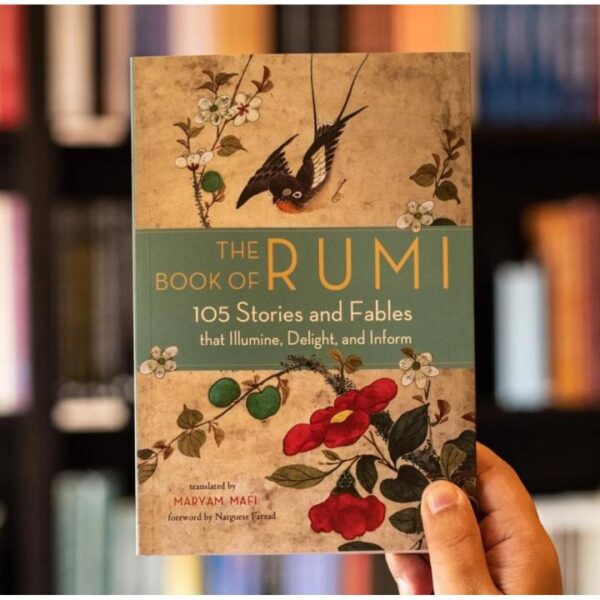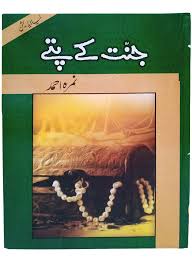Description
A selection of Jalal al-Din Rumi’s most enduring short stories and fables, translated and compiled by Maryam Mafi, “The Book of Rumi: 105 Stories and Fables that Illuminate, Delight, and Inform” is the full range of Rumi’s stories as they reflect his insight, wit, and spiritual self-reflection. As published in 2018, this book delivers through a series of stories on love, morality, faith, and enlightenment.
Overview
The Book of Rumi” is the adaptation of selected stories from Masnavi, considered to be one of the best works in Sufi literature. Masnavi is a very long, six-volume poem, which contains hundreds of stories, fables, and parables with the assistance of which Rumi explains his spiritual teachings. Maryam Mafi has chosen 105 such stories and brought them to modern readers without in any way diminishing their deeply philosophical and spiritual meaning.
Structure and Style
The book is comprised of short fables and parables. These stories carry a moral or spiritual message to the reader. These often allegorical and symbolic tales feature kings, beggars, animals, and prophets who confront numerous temptations, tests, and moments of revelation. Despite having originated in the 13th century, the stories provide timeless truths for modern readers.
The use of language by Mafi in her translation has made the thought of Rumi very accessible to any reader from any corner of the world. She kept an artistic lyrical and poetic quality of the stories told by Rumi as well, without losing track of the subtler implications deep within them. Stories are concise yet full of information on human nature, divine love, and the soul’s progress.
Themes
Divine Love and Union with God Many stories concentrate on Rumi’s central teaching: the soul will forever strive for union with the Divine. Quite frequently, protagonists in these narratives seek to reach something higher than themselves, and the drive to transcend the bounds of the world and become one with the fount of all loving is a human aspiration. Time and again, Rumi turns to the imagery of lover and beloved as he talks about that mystical union between humanity and God.
Such moral and ethical lessons from Rumi are his tales of wisdom that lead a good and ethical life; characters are often seen making a choice that portrays the conflict of good and evil, right and wrong, between selfishness and selflessness. Through the consequences, readers learn lessons on humility, compassion, patience, and inner truth before outward appearance.
Travel of the Soul Most stories depict the travel of the soul through various stages of being awakened. The protagonists face all such tribulations that symbolize the disentanglement of the soul from ego, desires, and other attachment needs in the quest for enlightenment. Rumi’s story has generally focused on the subject’s need for spiritual guidance and his inner evolution.
The Power of Surrender The most dominant theme of Rumi’s tales is the need for surrender to God’s will. He exhorts people to submit to a higher power, to let go of control, and to have faith in the greater design of God because it is only by letting go of ego and submitting to a higher power that true peace and enlightenment are attained. Many of these tales reveal to characters that worldly ambition is useless and how achieving alignment with God’s will brings tranquility.
Wisdom Through Simplicity Rumi is full of mundane, everyday occurrences that bring across sublime spiritual wisdom. Whether the dialogue between the animals of the world or an allegory with a king and a servant, Rumi indicates that sometimes wisdom stands hidden, recognizable only in humble ordinary places. His stories often contain humor and irony, challenging readers to see beyond the veil of mere appearances in life.
Famous Stories
One of the most famous parables by Rumi, Elephant in the Dark, told how only a small part of the truth is perceived by people depending upon how much they have experienced. It then turns into a metaphor for spiritual blindness and seeing beyond the surface level to understand the truth in totality.
The Parable of the Merchant and the Parrot: This free story orbits themes of freedom and attachment, as a merchant’s captive parrot teaches the merchant how to live life free.
The Lion and the Beasts: A moral fable, and a lesson on power, justice, and how to divide resources in perfect balance and fairness, with a teaching from the lion to all of the other animals on how best to share what is theirs.
The Sufi and His Donkey: This is one of the more amusing tales, showing how well the Sufi rises above the mess of the material world to exploit the antics of the ego, which is represented by the donkey that needs to be tamed.
Spiritual and Philosophical Insights
Rumi’s tales generally carry the heartbeat of core Sufi philosophy, including finding God within oneself and an appreciation for the interconnectedness of all beings. Often full of deep spirituality connected to every movement and experience in life, these parables sometimes lead humans toward achieving self-realization and divine connection.
At the same time, each story develops tension between the outer world and the inner journey. In other words, although in these stories characters might strive for money, power, or success, Rumi argues that full satisfaction is an outcome of internal conversion and deeper understanding of self and the divine. Conclusion
“The Book of Rumi” offers readers a lush and insightful introduction to the ageless vision of Rumi through drama and excitement that can both amuse and provoke. Maryam Mafi’s translation brings to modern readers the spirit of Rumi’s mystical teachings while remaining essentially spiritual. This collection is an invaluable resource for readers interested in Sufism, spirituality, and Rumi’s eternal message of love, self-discovery, and enlightenment’s path.
The book invites people to explore the mysteries of life and gives them the help they need to address the challenges of the human condition in a society that is based on love, humility, and spiritual growth. Each story is a stepping stone on the road to greater understanding and inner peace.










Reviews
There are no reviews yet.